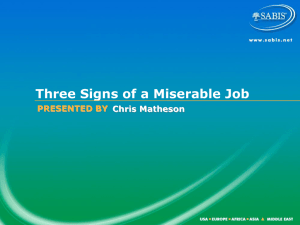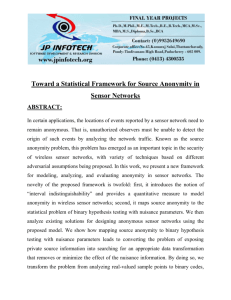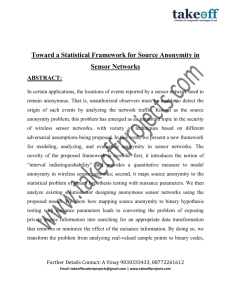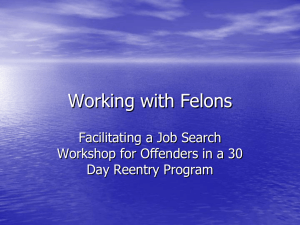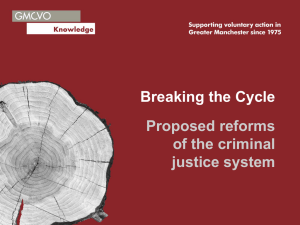Read the winning essay by Anna Dannreuther
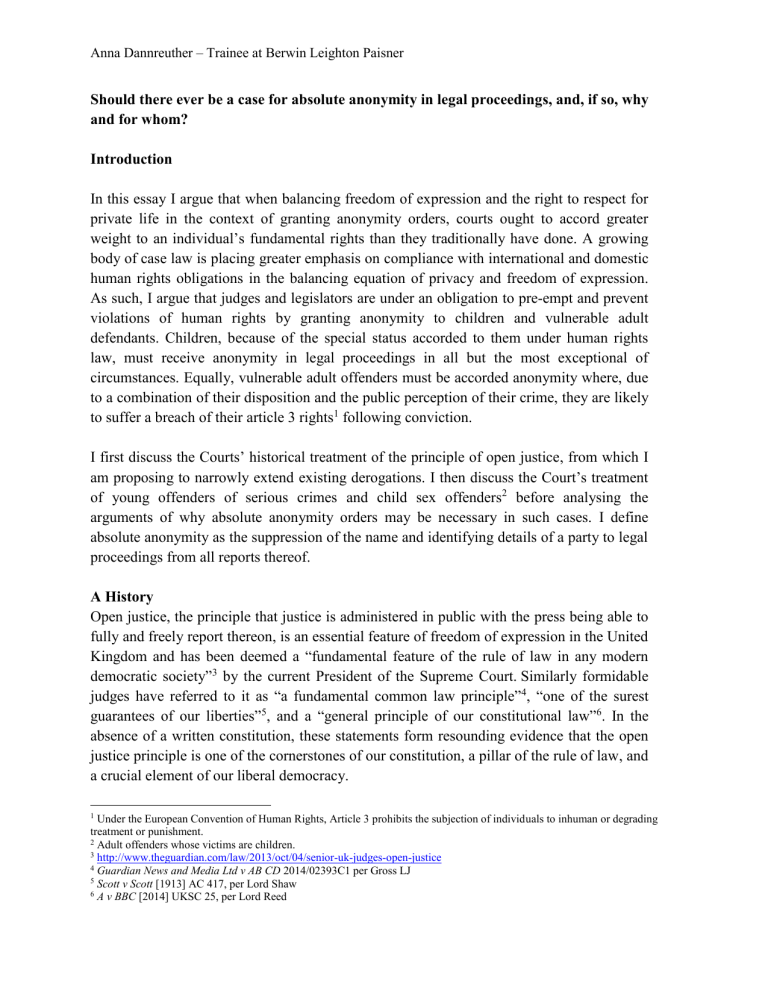
Anna Dannreuther – Trainee at Berwin Leighton Paisner
Should there ever be a case for absolute anonymity in legal proceedings, and, if so, why and for whom?
Introduction
In this essay I argue that when balancing freedom of expression and the right to respect for private life in the context of granting anonymity orders, courts ought to accord greater weight to an individual’s fundamental rights than they traditionally have done. A growing body of case law is placing greater emphasis on compliance with international and domestic human rights obligations in the balancing equation of privacy and freedom of expression.
As such, I argue that judges and legislators are under an obligation to pre-empt and prevent violations of human rights by granting anonymity to children and vulnerable adult defendants. Children, because of the special status accorded to them under human rights law, must receive anonymity in legal proceedings in all but the most exceptional of circumstances. Equally, vulnerable adult offenders must be accorded anonymity where, due to a combination of their disposition and the public perception of their crime, they are likely to suffer a breach of their article 3 rights
1
following conviction.
I first discuss the Courts’ historical treatment of the principle of open justice, from which I am proposing to narrowly extend existing derogations. I then discuss the Court’s treatment of young offenders of serious crimes and child sex offenders
2
before analysing the arguments of why absolute anonymity orders may be necessary in such cases. I define absolute anonymity as the suppression of the name and identifying details of a party to legal proceedings from all reports thereof.
A History
Open justice, the principle that justice is administered in public with the press being able to fully and freely report thereon, is an essential feature of freedom of expression in the United
Kingdom and has been deemed a “fundamental feature of the rule of law in any modern democratic society” 3 by the current President of the Supreme Court. Similarly formidable judges have referred to it as “a fundamental common law principle” 4 , “one of the surest guarantees of our liberties” 5 , and a “general principle of our constitutional law” 6
. In the absence of a written constitution, these statements form resounding evidence that the open justice principle is one of the cornerstones of our constitution, a pillar of the rule of law, and a crucial element of our liberal democracy.
1 Under the European Convention of Human Rights, Article 3 prohibits the subjection of individuals to inhuman or degrading treatment or punishment.
2 Adult offenders whose victims are children.
3 http://www.theguardian.com/law/2013/oct/04/senior-uk-judges-open-justice
4 Guardian News and Media Ltd v AB CD 2014/02393C1 per Gross LJ
5 Scott v Scott [1913] AC 417, per Lord Shaw
6 A v BBC [2014] UKSC 25, per Lord Reed
Anna Dannreuther – Trainee at Berwin Leighton Paisner
As such, it is little wonder that, in cases where the principle has been pitted against the individual interests of those seeking anonymity, open justice has tended to prevail and anonymity requests have ordinarily been denied. This includes cases where open justice has been weighed against the best interests of the child 7 , the privacy of an accused (but not convicted) sex offender 8 , and where the media threatened to launch a public campaign against an offender that would affect his resettlement into the community
9
. Out of concern that the general principle of open justice would be “eroded and for exceptions to grow by accretion”, the Court has generally seen no need to qualify this fundamental principle
10
. Case law has long observed that exposure is one of the prices of committing a crime 11 and that “it is impossible to over emphasise the importance to be attached to the ability of the media to report criminal trials” 12
.
However, more recently, the principle of open justice seems to be giving greater leeway where fundamental rights are at stake. In the 2014 case of A v BBC
13
, which concerned a convicted child sex offender being deported to his country of origin, the Supreme Court upheld A’s anonymity order partly on the basis that A’s article 2 and 3 rights
14
were likely to be violated on return to his home country if his conviction and return were publicised. Relevantly, the Court recognized that anonymity provided significant protection of A’s article 3 rights
15
and that, “as the paramount object must always be to do justice, the general rule as to publicity, after all only the means to an end, must accordingly yield” 16
. The Court also recognized that where the media’s article 10 rights are set against an individual’s article 2 or 3 rights “there can be no derogation from the latter”.
More recently still, in JX MX v. Dartford & Gravesham NHS Trust the Court of Appeal applied
A v BBC and allowed anonymity orders to be granted in personal injury approval hearings
17
on the following basis:
Proceedings involving children and vulnerable adults will often call for a measure of privacy, not necessarily because of the inherent nature of the issues to which they give rise, but because such persons may suffer a distinct injustice if they are exposed to the publicity that may be generated if the proceedings are held in public.
7 Fagan, R (on the application of) v Times Newspapers Ltd and others [2013] EWCA Civ 1275, R v Legal Aid Board ex parte
Kaim Todner (A firm) [1999] QB 966, Lord Woolf MR explained (at 977)
8 BBC v Roden [2015] IRLR 627
9 R (on the application of SF) v Secretary of State for Justice [2013] EWCA Civ 1275
10 R. v Legal Aid Board Ex p. Kaim Todner [1999] Q.B. 966 at p.978, per Lord Woolf MR
11 Fagan, R (on the application of) v Times Newspapers Ltd and others [2013] EWCA Civ 1275
12 Ex Parte Trinity Mirror plc, Times Newspaper Ltd, News Group Newspapers Ltd and Newsquest Ltd v A and B (Minors, acting by the Official Solicitor to the Supreme Court) [2008] EWCA Crim 50
13 A v BBC [2014] UKSC 25
14 Right to life and right not to suffer inhuman or degrading treatment.
15 A v BBC [2014] UKSC 25, para 72
16 Ibid. para 29, quoting the Lord Chancellor in Scott v Scott [1913] AC 417
17 JX MX (by her mother and litigation friend AX MX) v. Dartford & Gravesham NHS Trust [2015] EWCA Civ 96, 17 February
2015
Anna Dannreuther – Trainee at Berwin Leighton Paisner
This essay extends the logic of these recent developments, and argues that in legal proceedings involving children and vulnerable adults absolute anonymity should be granted to these parties.
Young Offenders
Children are accorded a special status in international human rights law. The UN Convention on the Rights of the Child (which the UK ratified in 1991) states in its preamble that: “the child, by reason of his physical and mental immaturity, needs special safeguards and care, including appropriate legal protection” 18
. Article 40 additionally states:
States Parties recognize the right of every child alleged as, accused of, or recognized as having infringed the penal law to be treated in a manner consistent with the promotion of the child's sense of dignity and worth, which reinforces… the desirability of promoting the child's reintegration and the child's assuming a constructive role in society.
To this end, States Parties are to ensure that children who have committed a crime “have [their] privacy fully respected at all stages of the proceedings.” 19
In its General Comment No. 10
(2007): Children’s rights in juvenile justice , the UN Committee on the Rights of the Child explain that this provision is “meant to avoid harm caused by undue publicity or by the process of labelling. No information shall be published that may lead to the identification of a child offender because of its effect of stigmatization, and possible impact on his/her ability to have access to education, work, housing or to be safe.”
20
Importantly, it recommended that the sentence be delivered in public at a court session “in such a way that the identity of the child is not revealed.” 21
In domestic law, these obligations find expression through the UK’s “Sentencing Guidelines for
Youths”. These recommend that courts be aware that the youth justice system is intended to
“promote re-integration rather than to impose retribution” 22
. Further, the Children and Young
Persons Act 1933 requires that, when dealing with young people, Courts must have regard for the welfare of the child
23
. In 2000, the Divisional Court held that a juvenile has a prima facie right to anonymity, which should not be dispensed with lightly, and certainly not as a punishment or to “name and shame” 24
.
Yet, despite this extensive domestic and international protection, whilst young defendants before the youth court 25 are accorded full anonymity, the anonymity of young defendants before
18 This echoed the Universal Declaration of Human Right’s Article 25, which stated that childhood is entitled to “special care and assistance”.
19 Article 40(2)(vii) UN Convention on the Rights of the Child
20 General Comment No. 10 (2007): Children’s rights in juvenile justice, Committee on the Rights of the Child, Forty-Fifth
Session, Geneva, 15 January – 2 February 2007, http://tbinternet.ohchr.org/_layouts/treatybodyexternal/Download.aspx?symbolno=CRC%2fC%2fGC%2f10&Lang=en
21 Ibid. para. 66
22 https://www.sentencingcouncil.org.uk/wp-content/uploads/web_overarching_principles_sentencing_youths.pdf
23 S.44 Children and Young Persons Act 1933
24 McKerry v Teesdale and Wear Valley Justices [2001] EMLR 5, per Lord Bingham C.J.
25 For offenders aged between 10 and 17.
Anna Dannreuther – Trainee at Berwin Leighton Paisner
Magistrates’ and Crown Courts (where defendants have committed more serious crimes) is at the judge’s discretion 26
. What follows is an analysis of why the public interest of naming juvenile defendants cannot be said to outweigh the serious human rights implications of naming.
The human rights consequences of naming and shaming are serious. As a precedent, we have juvenile killers Venables and Thompson, who had to be given new identities on coming out of prison (demonstrating the publicity orders were only of short-term effect). Venables’ family have reportedly had to move 9 times in 8 years for fears of attacks
27 and Venables himself has suffered attacks in prison as well as forming the subject of a never-ending media storm that inevitably breaches his rights to private life and prohibits any steps he might take towards rehabilitation 28 .
To the contrary, the negative effects of anonymity are relatively insignificant. I will take the recent case of named juvenile murderer Will Cornick as an example
29
. Coulson J decided to name Will because, in his opinion, that would add to the debate in the public interest about young killers and would have a deterrent effect on potential murderers. However, as young people crimes only very rarely carry out such crimes
30
(which tend to be one-off, isolated offences) the concurrent public debate on young killers is relatively small and the deterrent effect of naming is negligible. Furthermore, given that children are by their very nature undeveloped and impressionable, naming a defendant risks sensationalising the crime and its perpetrator, potentially leading to copycat crimes.
Equally, arguments that young serious offenders should be named out of a concern for public safety on their release must be tempered by the reality that these defendants will undertake long sentences and will only be released if proven to be reformed and rehabilitated. Cornick himself received a minimum tariff of 20 years in prison (5 years longer than he has been alive) and may never be released
31
.
26 The general rule is that proceedings in the youth court are not open to the public (section 47 Children’s and Young Persons A
1933 – “CYPA 1933”) and although press representatives are permitted to report on proceedings, they are automatically restricted from reporting the identity or any details that would lead to the identity of any child or young person involved in the proceedings, whether as a defendant, witness or victim (section 49 CYPA 1933). The identity of a victim, witness or defendant under the age of 18 who is concerned in proceedings in the magistrates' court or Crown Court may be published unless the court makes an order under section 39 CYPA restricting reporting in a newspaper; or in a sound or television broadcast (section 39
CYPA and section 57(4) Children and Young Persons Act 1963). See: http://www.cps.gov.uk/legal/p_to_r/reporting_restrictions/
27 http://www.dailymail.co.uk/news/article-57256/Bulger-killers-family-attacked.html
28 See, for example, the media outcry when Venables joined an online dating site under his new identity, which ultimately led to him taking down his profile: http://www.mirror.co.uk/news/uk-news/james-bulger-killer-jon-venables-5081356
29 R v William Cornick, [2014] EWHC 3623 (QB), http://www.theguardian.com/uk-news/2014/nov/08/ann-maguire-killer-willcornick-anonymity-overhauled
30 http://www.aic.gov.au/media_library/publications/tandi_pdf/tandi409.pdf
31 See Coulson J’s comments to that effect in R v William Cornick (supra, footnote 25): “[t]here is no guarantee whatsoever that you will then be released. You will only be released thereafter once the Parole Board decides that you no longer pose a danger to the public. Given the psychiatric and psychological reports that I have read, it is quite possible that that day will never come.”, in
Part 4, Mechanics of the Sentence.
Anna Dannreuther – Trainee at Berwin Leighton Paisner
Given the strong human rights protection in favour of children’s privacy and protection, the serious human rights implications of naming individual defendants cannot be outweighed by the comparatively minor negative effects anonymity has on public debate, deterrence and public safety.
Vulnerable Adult Offenders
Vulnerable adults are those who, because of a combination of the nature of their crime and their disposition (in terms of their age, state of physical health, and/or mental health), are likely to undergo a level of suffering sufficient to breach their article 3 rights upon conviction. As such, they ought to be granted anonymity as part of the UK’s absolute obligation to protect an individual’s article 3 rights and prevent their suffering inhuman and/or degrading treatment 32
.
Because of the widespread hostility surrounding their crimes, child sex offenders are the main potential recipients of such protection. As such, on application for anonymity by the defendant’s counsel
33
, courts ought to take into account the stigma and public hostility surrounding their crimes, which often leads to physical violence or prolonged bullying, both in prison and on the outside
34
. The Courts ought to take into account evidence pertaining to the individual in order to assess whether, on balance, that individual is likely to suffer a level of negative treatment such that his or her article 3 rights are significantly breached. If so, the Court should grant anonymity.
Child sex offenders are currently given no extra legal protection to recognise their increased vulnerability
35
. Whilst they are sometimes sent to prisons specially designed for sex offenders only, giving them increased protection, this is not always the case. For example, the high-profile cases of Rolf Harris and Mark Langham highlight the realities of child sex offenders in normal prisons
36
. Even if offenders are accorded a certain degree of safety by being put in a sex offenders only prison, their security on release is uncertain. This is evidenced by the public’s reaction to the News of the World’s 2001 campaign to name and shame convicted sex offenders in an attempt to instigate “Sarah’s law”, a UK version of the USA’s Meghan’s law, which would have created a publicly accessibly sex offender register. The paper dropped its name and shame
32 See para 176 Opuz v. Turkey [2009] ECHR 33401/02., NB. Chahal v UK ([1996] EHRR 413, Application no. 22414/93 ) clarified that everybody has a right to protection under article 3, regardless of their identity or actions. Degrading treatment is that which arouses feelings of fear, anguish and inferiority capable of humiliating or debasing the victim and possibly breaking their physical or moral resistance ( Tyrer v. the United Kingdom (5856/72) ECHR 1978).
33 Under s.11 of the Contempt of Court Act
34 http://www.theguardian.com/uk-news/2013/jul/09/mark-bridger-attacked-prison-april-jones http://www.mirror.co.uk/news/uknews/vigilantes-beat-child-sex-offender-4658063 http://www.dailystar.co.uk/news/latest-news/425678/Gary-Glitter-attackedbehind-bars-moved-solitary-confinement
35 Although they are occasionally granted anonymity at the judge’s discretion, see: A v Scottish Ministers [2008] SLT 412
36 Mark Langham has had his cell flooded by inmates and is reportedly ignored by guards, http://www.theguardian.com/commentisfree/2007/sep/25/unjustpunishment , and Harris suffered prolonged bullying and was spat at by an inmate before being moved to a sex offenders only prison for his safety http://www.mirror.co.uk/news/uk-news/rolfharris-moved-soft-prison-4418455
Anna Dannreuther – Trainee at Berwin Leighton Paisner campaign after more than 100 people rioted at a convicted child sex offender’s home in
Portsmouth, the individual escaping only 15 minutes earlier
37
.
Conclusion
This essay urges the UK to adopt a progressive approach to anonymity by narrowly extending exceptions to the principle of open justice on fundamental rights grounds. In particular it seeks to extend anonymity to all children, regardless of their crime, because of the vulnerable nature of children weighed against the comparatively negligible public interest considerations.
Furthermore, the UK should give greater consideration to the realities facing child sex offenders upon their conviction and should accordingly (on the application of counsel for the defendant) carry out an objective evaluation of the individuals’ disposition and crime and the likelihood of a future breach of article 3 rights.
Wordcount: 2,000 (excluding title and footnotes)
37 http://www.telegraph.co.uk/news/uknews/1351615/Paper-drops-paedophile-campaign.html
